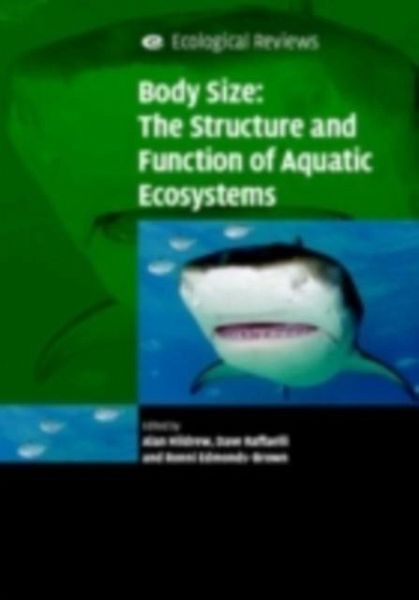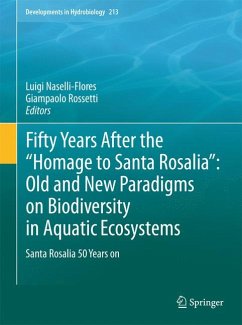
Body Size: The Structure and Function of Aquatic Ecosystems (eBook, PDF)
Versandkostenfrei!
Sofort per Download lieferbar
48,95 €
inkl. MwSt.
Weitere Ausgaben:

PAYBACK Punkte
24 °P sammeln!
Ecologists have long struggled to predict features of ecological systems, such as the numbers and diversity of organisms. The wide range of body sizes in ecological communities, from tiny microbes to large animals and plants, is emerging as the key to prediction. Based on the relationship between body size and features such as biological rates, the physics of water and the amount of habitat available, we may be able to understand patterns of abundance and diversity, biogeography, interactions in food webs and the impact of fishing, adding up to a potential 'periodic table' for ecology. Remarka...
Ecologists have long struggled to predict features of ecological systems, such as the numbers and diversity of organisms. The wide range of body sizes in ecological communities, from tiny microbes to large animals and plants, is emerging as the key to prediction. Based on the relationship between body size and features such as biological rates, the physics of water and the amount of habitat available, we may be able to understand patterns of abundance and diversity, biogeography, interactions in food webs and the impact of fishing, adding up to a potential 'periodic table' for ecology. Remarkable progress on the unravelling, describing and modelling of aquatic food webs, revealing the fundamental role of body size, makes a book emphasising marine and freshwater ecosystems particularly apt. In this 2007 book, the importance of body size is examined at a range of scales that will be of interest to professional ecologists, from students to senior researchers.
Dieser Download kann aus rechtlichen Gründen nur mit Rechnungsadresse in A, B, BG, CY, CZ, D, DK, EW, E, FIN, F, GR, HR, H, IRL, I, LT, L, LR, M, NL, PL, P, R, S, SLO, SK ausgeliefert werden.













